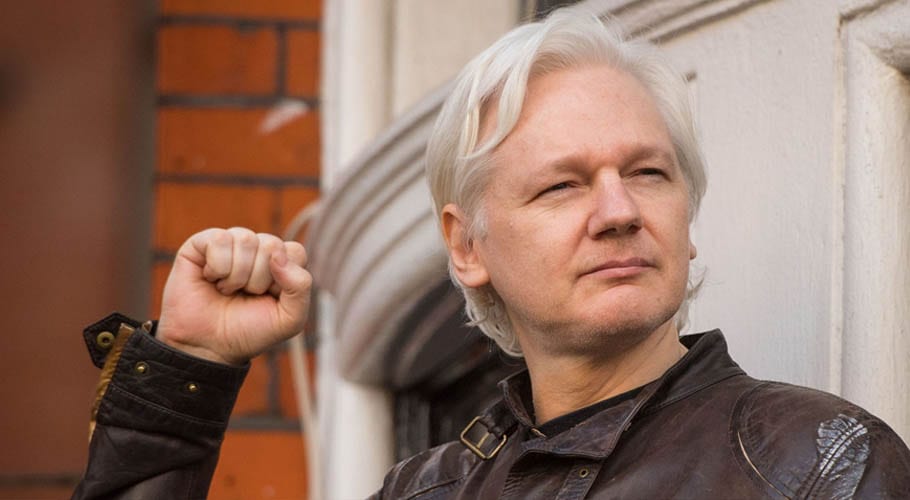LONDON: A British judge ruled on Monday that WikiLeaks’ founder Julian Assange should not be extradited to the United States to face charges of breaking a spying law and conspiring to hack government computers and publishing hundreds of thousands of secret documents online.
Judge Vanessa Baraitser said she had refused his extradition to the United States because of fears that he could commit suicide. The ruling on Monday at the Central Criminal Court in London, known as the Old Bailey, was a major turning point in a legal struggle that has spanned more than a decade.
Assange faces 18 charges in the United States relating to the 2010 release by WikiLeaks of 500,000 secret files detailing aspects of military campaigns in Afghanistan and Iraq. If convicted in the United States, Assange could have been jailed for up to 175 years.
The extradition hearing follows over a decade of international legal controversies surrounding the Australian publisher. The court decision on Monday is subject to appeal, meaning legal proceedings in the country could still continue before any possible extradition.
Before the ruling, both Germany and a UN rights expert expressed concern over the human rights and humanitarian problems presented by the extradition. Assange suffers from a respiratory condition that makes him more vulnerable to COVID-19, which has infected several inmates at the high-security prison in southeast London where he has been held.
Defence witnesses called during the hearing said Assange’s history of depression meant he would be a suicide risk if sent to the United States and locked up in a maximum-security prison. He has also complained of hearing imaginary voices and music during his detention.
Before the ruling Kristinn Hrafnsson, editor-in-chief of WikiLeaks, told a news agency that he was “almost certain” the court will rule against Assange. “We’ve seen such bias in the proceedings, there have been so many violations against Julian in the proceedings, that unfortunately I’m almost certain that the decision tomorrow will be that he should be extradited.”
In an earlier statement, he said that “the mere fact that this case has made it to court, let alone gone on this long, is a historic, large-scale attack on freedom of speech”.
United Nations special rapporteur on torture Nils Melzer has urged US President Donald Trump to pardon Assange, saying he is not “an enemy of the American people”. The prospect of a possible pardon from the outgoing US president has gained ground following a slew of pardons granted to a number of Trump’s political allies.
After Sweden first issued an arrest warrant for Assange in 2010 over allegations of sexual assault, he sought asylum in Ecuador’s embassy in London, where he remained from 2012 until 2019.
In April 2019, Ecuador revoked his citizenship. The following day, British police dragged Assange out of the embassy after being informed that his asylum had been withdrawn. He was arrested by British police for breaching his bail terms. The earlier Swedish assault investigation against him was later dropped due to lack of evidence.


























![Local residents at the Swat River, which is overflowing due to pre-monsoon heavy rains in the area on the outskirts of Mingora, the main town of Pakistan's Swat Valley [Sherin Zada/AP]](https://mmnews.tv/wp-content/uploads/2025/06/Flooding-in-Swat-river-120x86.jpg)







